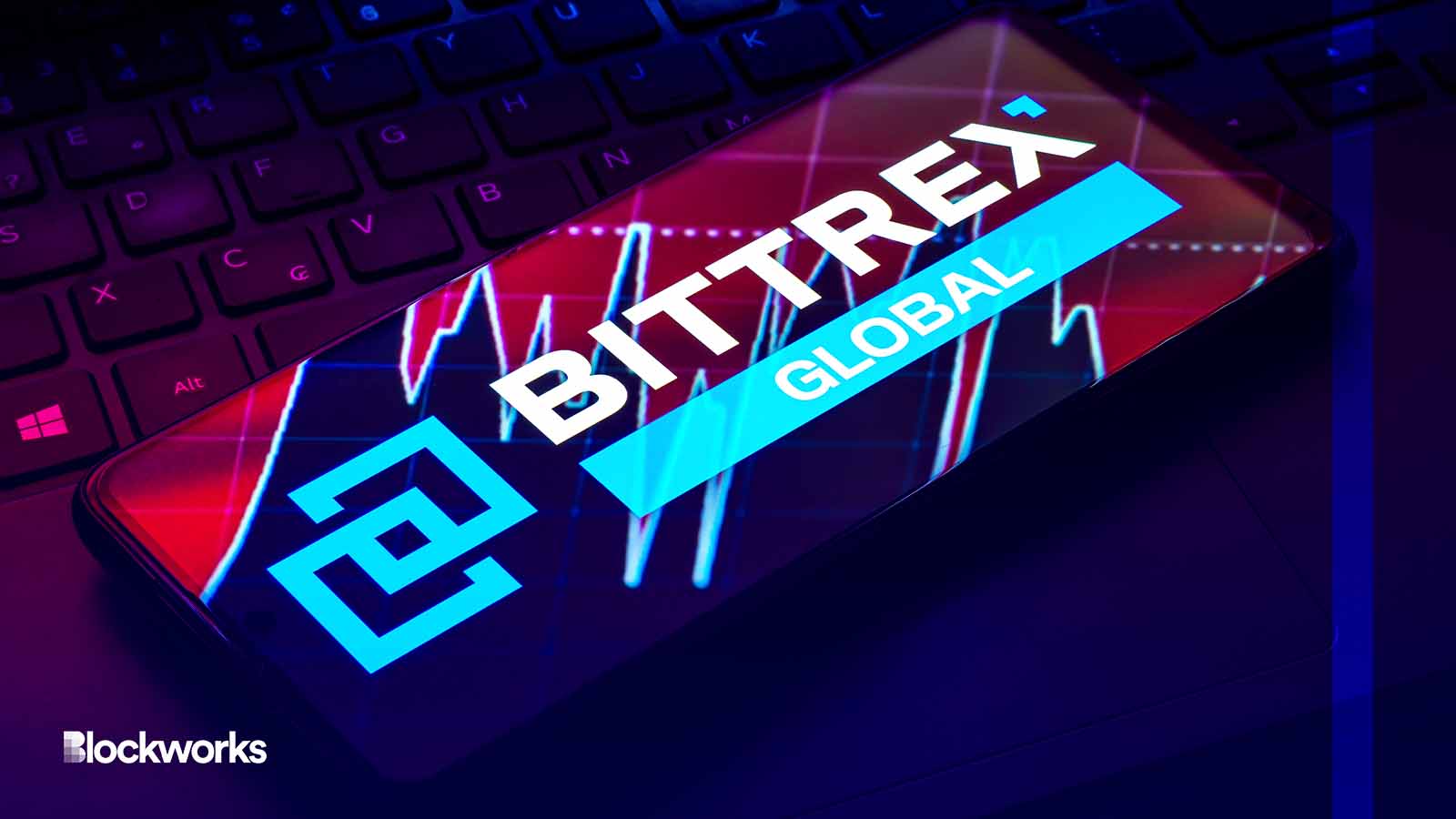Bittrex Global not ‘paying a penny’ as its US affiliate set to pay SEC
Exchange’s bankrupt US arm is responsible for the $24 million settlement amount while its foreign affiliate acts only as a “second-line guarantor,” Bittrex Global says

rafapress/Shutterstock modified by Blockworks
Crypto exchange Bittrex last week agreed to pay $24 million to the US Securities and Exchange Commission as part of a settlement related to unregistered securities allegations.
However, the company’s global business said it is not shelling out any money. The $24 million is to be paid by Bittrex’s US arm, Bittrex Global said in a statement Wednesday.
“What makes this result so unusual and gratifying is that our client, Bittrex Global, will put this matter behind it without paying a penny in settlement,” added Andrew Michaelson, partner at law firm King & Spalding. “We are thrilled with this result on behalf of our client.”
Bittrex’s settlement with the SEC was filed on Aug. 10, with the company neither admitting nor denying various alleged securities violations.
The court confirmed the settlement late Tuesday, a company spokesperson told Blockworks in an email. While Bittrex Global will not make any payment, the representative added, it has agreed to be “jointly and severally liable” for the settlement amount as a “second-line guarantor.”
Bittrex’s US arm said in March it would shut down, in part because of the “regulatory uncertainty” in the country. CEO Richie Lai noted at the time that the exchange would look to continue growing Bittrex Global, a separate business regulated in Bermuda and Liechtenstein.
The SEC hit the company with charges the following month, alleging that six tokens available on Bittrex are securities. The regulator charged Bittrex Global, specifically, for “failing to register as a national securities exchange in connection with its operation of a single shared order book along with Bittrex.”
Bittrex US filed for bankruptcy in the weeks after the SEC filed its complaint.
Bittrex Global CEO Oliver Linch noted during an interview with Blockworks in May that Bittrex Global and the US business are “entirely separate companies” — a fact he said he doesn’t think the SEC understands.
“Bittrex Global has made enormous investments to ensure that we do not accept US customers,” Linch said in a Wednesday statement. “We service clients and provide services exclusively outside the US.”
All Bittrex Global customer funds remain “safe and accessible,” the company said.
Get the news in your inbox. Explore Blockworks newsletters:
- The Breakdown: Decoding crypto and the markets. Daily.
- Empire: Crypto news and analysis to start your day.
- Forward Guidance: The intersection of crypto, macro and policy.
- 0xResearch: Alpha directly in your inbox.
- Lightspeed: All things Solana.
- The Drop: Apps, games, memes and more.
- Supply Shock: Bitcoin, bitcoin, bitcoin.





